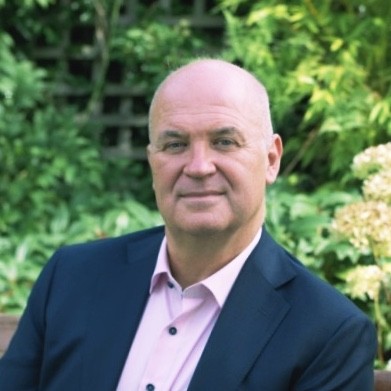Though former Chief Medical Officer Dr. Tony Holohan said that Trinity may be “the only institution in Dublin he doesn’t hold a certification from,” he does have an intrinsic connection to the school: he assumed a position as an adjunct professor in the Trinity School of Medicine in April of this year, after originally signing a deal in 2022 to teach at the university which was later withdrawn.
Using this experience and his own time spent in medical school at University College Dublin (UCD), Dr. Holohan provided advice to first-year students coming into university in Ireland’s capital.
Students across the country know well the generation-defining issues that have plagued university students; the mounting climate crisis, the knock-on effects of the Covid-19 pandemic, and an international cost-of-living crisis are only a few of the concerns that directly impact those coming into university for the first time. Trinity’s status as an internationally recognised leader in research and teaching has catapulted many of the issues to the forefront of conversation both on- and off- campus.
What students may not be familiar with, however, is the persistence of these issues across decades. Dr. Holohan reflected on his own experience in the mid-80s as a fresher, citing a time of international and local struggle as a retrospective defining point of his university experience.
“It was a really difficult and dark time in Ireland financially as well as socially,” Dr. Holohan said. “That’s very easy to see in retrospect when you look at the range of changes that have happened in Irish society.”
When drawing comparisons between his own university time and that of students now, there was a heavy emphasis on the intersectionality and increasing complexity of challenges that students see in the world as well as those that they face personally.
“I think the world is a much more complex place than it was in my time, or maybe I just see the complexities that I couldn’t see when I was eighteen,” Dr. Holohan said. “I think that some of the the great challenges that the world faces have really kind of manifested themselves in a way that’s created challenge for young people in figuring out who they are, what their role is, how they should respond to some of these, how they can adapt to the challenges that these bring and continue to grow and develop as individuals and societies.”
He also said that while, for him and other students in his first year of university, these issues were prevalent, in many ways, university life served as a buffer against those problems that had been instrumental in the country at that time.
“I appreciate in retrospect that issues like unemployment and emigration were very much part of the reality of life at that time for lots of people, and I was very insulated [from that]”, Dr. Holohan said. “I was doing a professional course where, at the end of it, there was a job that I walked into three weeks after my finals. It’s only in retrospect that I can really understand the privilege of that.”
One could certainly argue that insulation is no longer a luxury for students in universities, as the rise of social media and communication technology has flung open doors for conversation surrounding common grievances that students share. The other side of those conversations, however, is a massive rise of conflicting narratives and the growing divide between individuals.
“Obviously just as social media is a great force for potential good in terms of communication and ease, and in terms of access to information, it’s also a significant source of both disinformation and misinformation and has shaped all of our lives,” Dr. Holohan said. “All of those kinds of issues interrelating with one another create a much more challenged context for young people.”
It is often lamented by older generations that young people live in an echo chamber of opinion due to social media. Indeed many students coming into university on the heels of the Covid-19 pandemic have faced difficulty when being confronted with those who disagree with them; likely due to a socialisation drought from months, or even years, spent isolated. Dr. Holohan’s book We Need to Talk discusses the importance of difficult conversations and finding common ground, drawing upon his own experience as Chief Medical Officer and struggles in his personal life. He extolled the necessity of students – especially freshers – to remain open to learning.
“Difficult conversations are a feature of life for everyone, irrespective of whether we have roles in the public service or whether it’s just in our day-to-day personal lives,” Dr. Holohan said. “When I was young, I thought the whole world was black and white. Everything was either this or it was that. And the older you get, I think the more you appreciate that actually most of the world is grey. Nothing is ever quite certain.”
Though there was abundant discussion about the problems that university students face, Dr. Holohan ultimately reflected on his time in university, especially in first year, as a medium for joy and connection.
“I didn’t know anybody, so I was quite new and stepping out of the life I had lived,” Dr. Holohan said. “It was an exciting time. It was a time for new friends, some who are friends for life.”
Despite the obvious contrast between the experience of freshers in the 80s and today, there are a few sentiments that remain the same. Dr. Holohan’s? Trust your gut.
“Follow the path that brings you toward the things that you love, and the things that you love doing and that stimulate you,” Dr. Holohan said. “You won’t be happy in a job unless it stretches you in some way. If each day is a challenge, but a challenge in the course of doing something that you love, that is, to my mind, the advice that I would give.”







